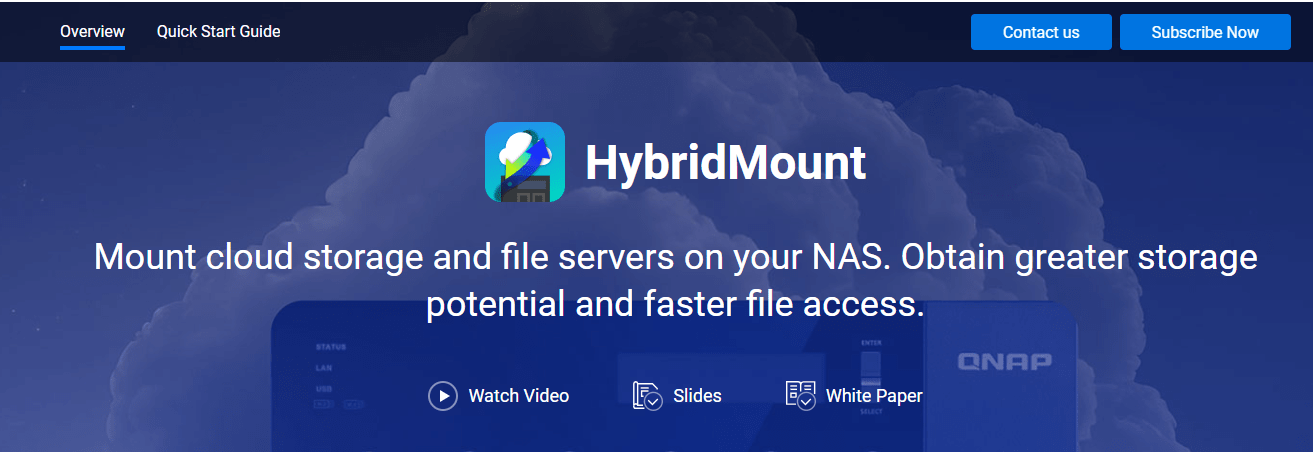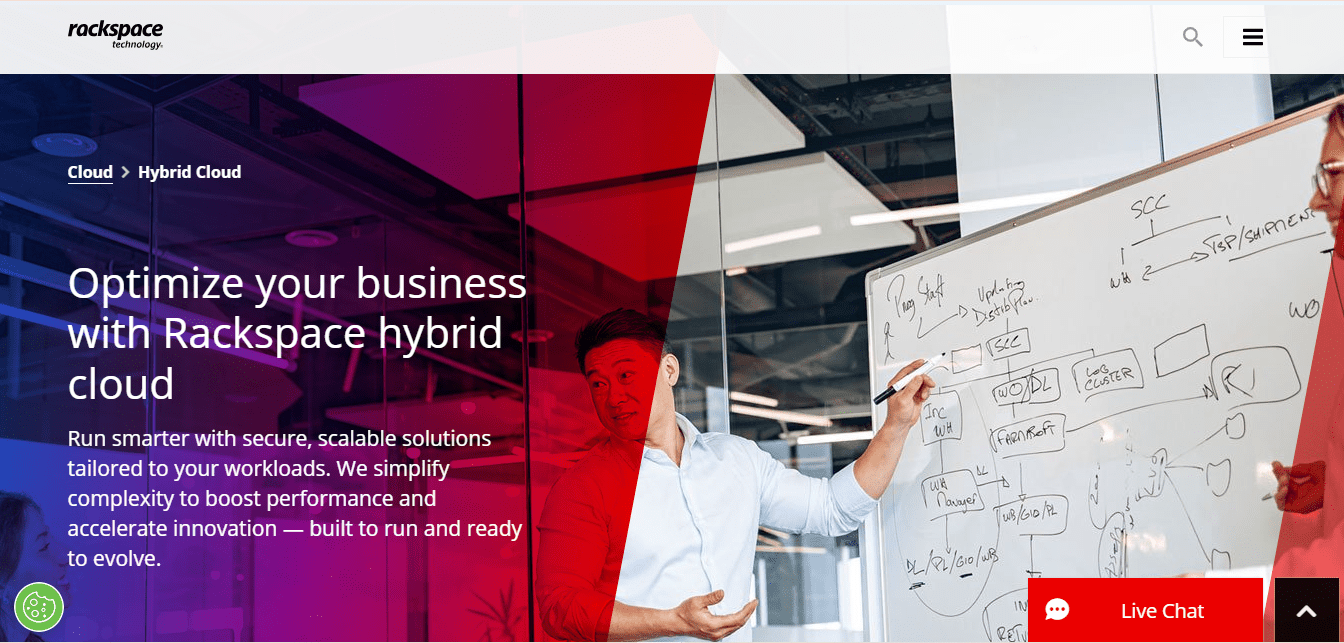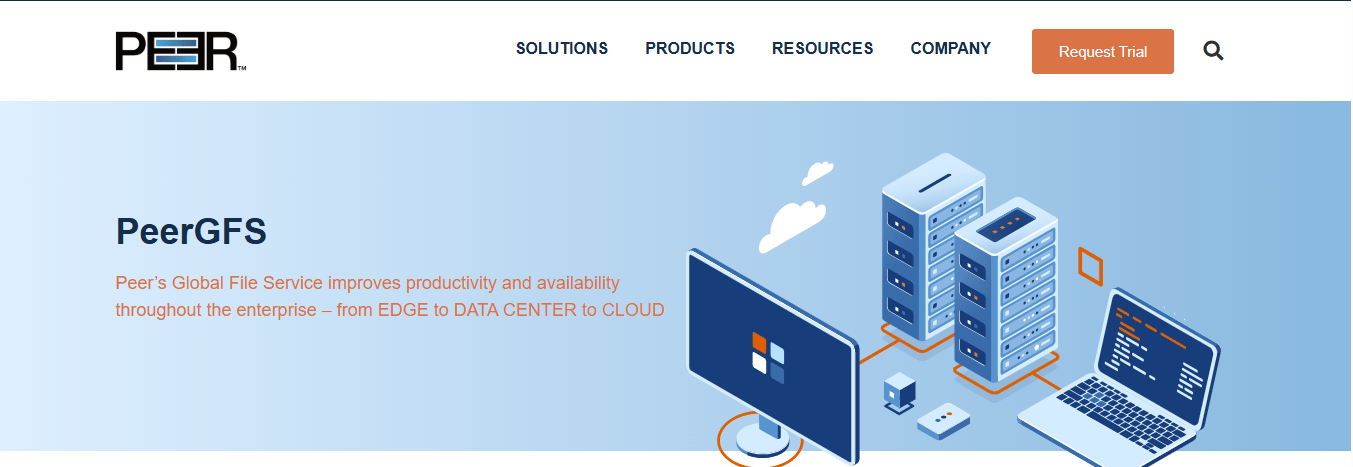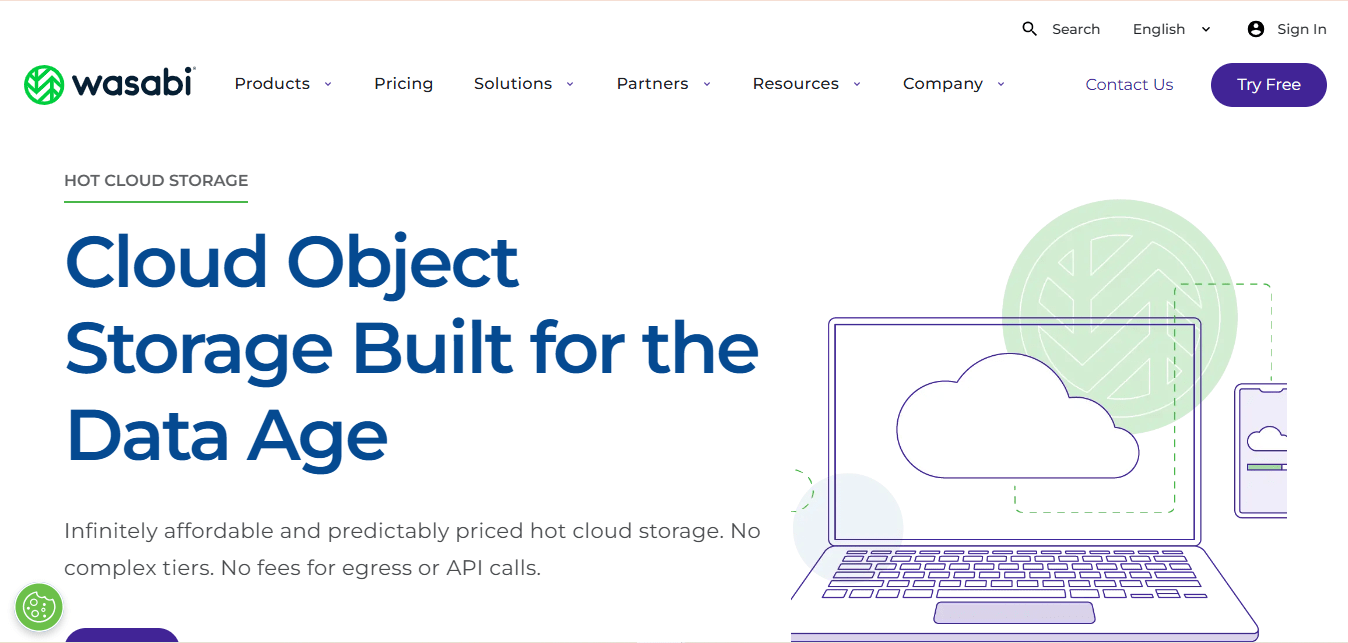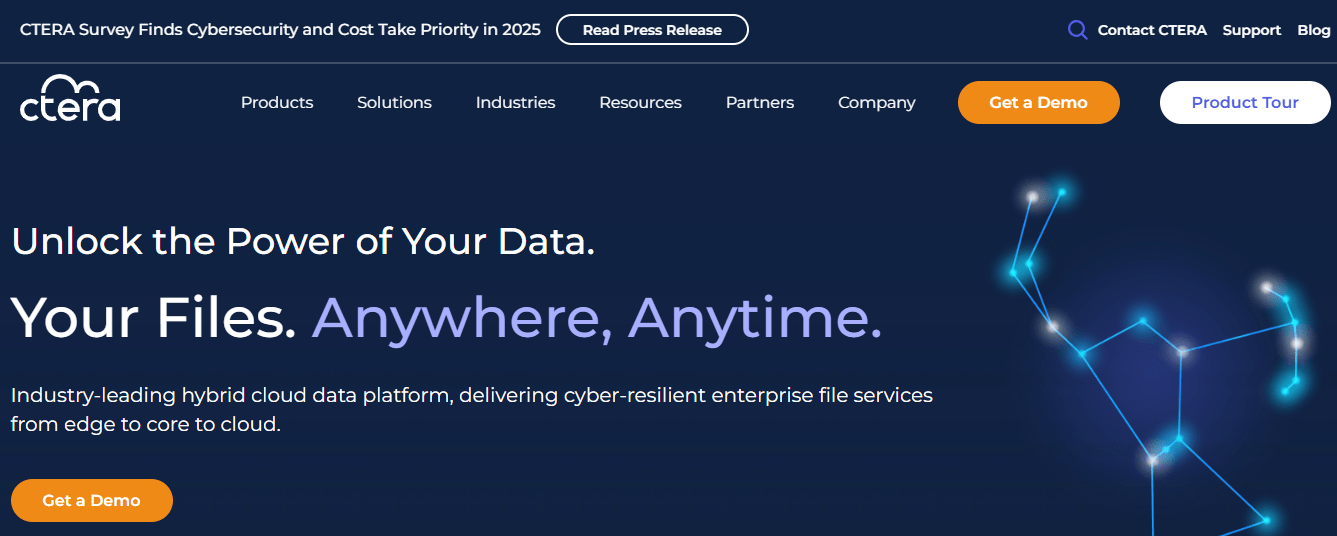A hybrid cloud storage solution gives you the best of both worlds. The security of private storage with the flexibility and affordability of public cloud services.
In this setup, your data lives in both private and public environments, depending on your specific needs. The private cloud gives you full authority over access, security, and management perfect for sensitive files or data you use often and need to keep close at hand. The public cloud, meanwhile, offers plenty of storage space and easy scalability at a lower cost, making it ideal for backups, old records, or less vital information.
Both environments stay connected and function as one integrated system, giving you a secure, flexible, and efficient way to manage your data.
Hybrid cloud storage lets you keep important or sensitive data in your own secure storage while using the cloud’s flexibility and lower costs for less critical files, backups, and archives. In this guide, we’ll look at the top 12 affordable hybrid cloud storage solutions that offer powerful, enterprise-level features without costing too much.
Top 12 Best Affordable Hybrid Cloud Storage Solution
1. Cloudian HyperStore
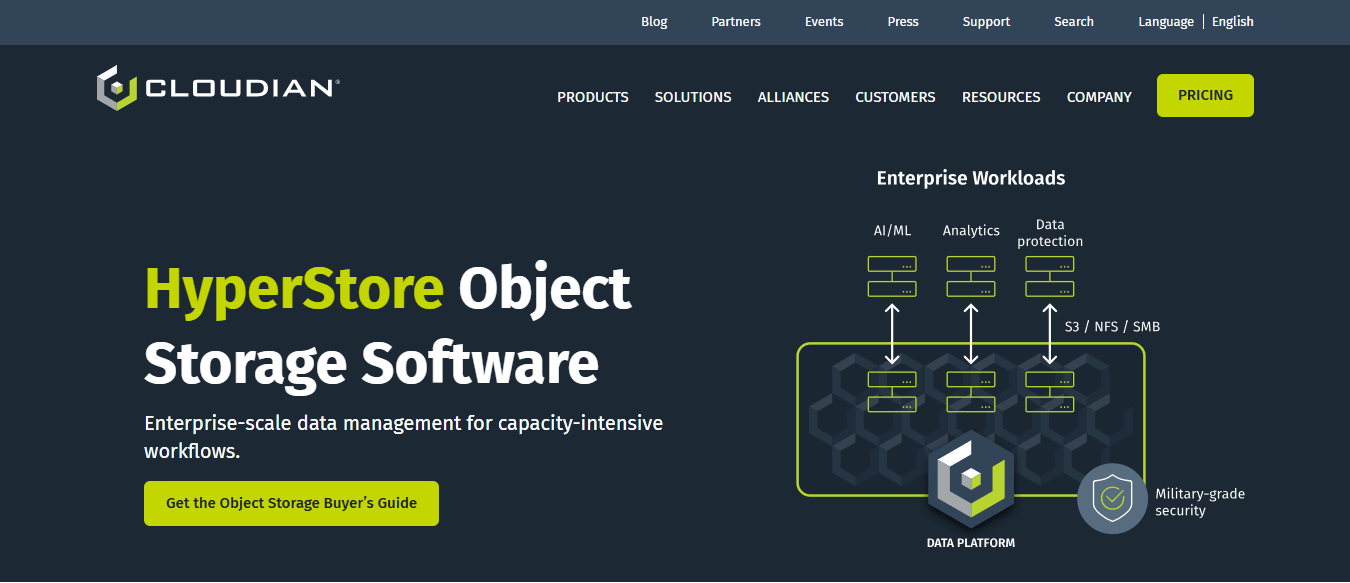
Cloudian HyperStore is an enterprise-level object storage platform built to manage massive volumes of unstructured data such as videos, backups, and logs. It operates within on-premises data centers and supports both hybrid and multi-cloud setups. The system can grow with expanding data demands, secure information, and handle advanced workloads like AI applications. Because it’s a software-defined storage (SDS) platform that runs on standard x64 servers, businesses can cut down storage expenses while maintaining high reliability and unlimited scalability.
Features
- Exabyte-Scale Expansion: You can start with a small setup and expand storage capacity as needed. HyperStore supports growth in a single location or across several sites, all managed under one interface.
- AI-Optimized Performance: The platform delivers high-speed data access with low latency to meet AI workload requirements. It supports GPU direct access, all-flash configurations, and S3 API parallel processing to boost performance.
- Full S3 Compatibility: HyperStore fully supports AWS S3 APIs, allowing integration with applications built for S3 with minimal modifications.
- Unified File and Object Access: The system manages both file and object data types in one platform, simplifying data organization and reducing management complexity.
Pros
- Provides multiple access options (NFS, CIFS, SFTP) for greater flexibility
- Works efficiently across hybrid and multi-cloud setups
- Handles petabyte-scale data storage for enterprise use
- Delivers high reliability and consistent uptime
Cons
- The initial configuration process can be lengthy and complex
- Lacks strong mobile app integration for remote access
Pricing
Cloudian HyperStore’s pricing depends on contract terms and deployment size. For an exact estimate, customers should contact Cloudian.
2. AWS Storage Gateway
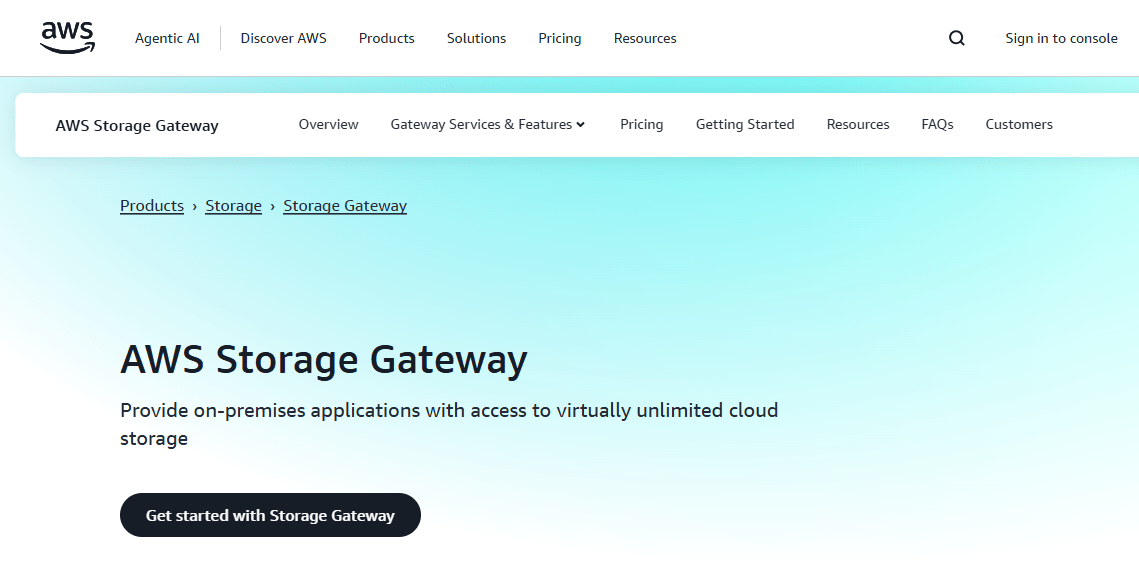
AWS Storage Gateway enables businesses to use cloud storage for backup, archiving, disaster recovery, and data transfer while keeping frequently used data available locally for quick access. This hybrid setup ensures data security in the cloud and provides on-premises applications with smooth access through a familiar interface. It helps reduce storage management complexity and overall costs in hybrid storage environments such as moving backups to the cloud, supporting on-site file sharing with cloud storage, and providing low-latency access to AWS data.
Features
- Easy Setup: Quick installation and connection to existing systems, making AWS Storage accessible without complicated configurations.
- Multiple Connection Protocols: Supports NFS, SMB, iSCSI, and iSCSI-VTL for seamless integration with local production or backup applications.
- Local Caching: The gateway appliance stores recently accessed or written data locally, ensuring fast access to AWS-stored information.
- Secure Data Transfer: Encrypts all data transmitted between the gateway and AWS, keeping uploads and downloads safe from unauthorized access.
Pros
- Flexible payment options
- Minimal latency with support for data residency requirements
- Offers private cloud functionality on-site
Cons
Primarily beneficial for organizations that rely on maintaining local operations.
Pricing
The cost of using File Gateway depends on the volume of data stored in Amazon S3, billed per gigabyte, with regional price differences.
- Data written to AWS Storage: $0.012 per GB
- File storage in Amazon S3: Billed per S3 request
3. NetApp

NetApp’s hybrid cloud storage solution helps businesses combine their on-premises storage with public cloud services in one unified system. It allows organizations to store sensitive data securely on-site while transferring less critical workloads, archives, or backups to the cloud. This setup offers the flexibility, scalability, and cost benefits of the cloud while maintaining centralized control and visibility across environments.
Features
- Unified Data Fabric: Connects and manages data across on-premises and multiple cloud platforms.
- Data Replication: Syncs and replicates data efficiently between local and cloud environments.
- Storage Optimization: Uses deduplication and compression to reduce storage consumption.
- Automated Data Tiering: Moves data automatically between storage layers based on usage.
- Multi-Cloud Compatibility: Supports major cloud providers including AWS, Azure, and Google Cloud.
- Built-In Data Protection: Offers security, backup, and recovery tools to protect against data loss.
Pros
- Provides a unified hybrid environment where data flows smoothly between on-premises and cloud systems.
- Offers strong data management features
- Cross-cloud flexibility.
- Simple setup and maintenance make it easier for IT teams to manage storage operations.
Cons
- The data sharing functionality can be difficult and time-consuming to configure.
- Integration with certain systems may require additional setup or technical expertise.
Pricing
Backup and Recovery: Based on the front-end capacity used.
- Pay-as-you-go: $0.05 per GB/month
- 12-month commitment: $0.0475 per GB/month
- 36-month commitment: $0.0425 per GB/month
(Note: Actual pricing may vary depending on region, usage volume, and selected service options.)
4. Backblaze
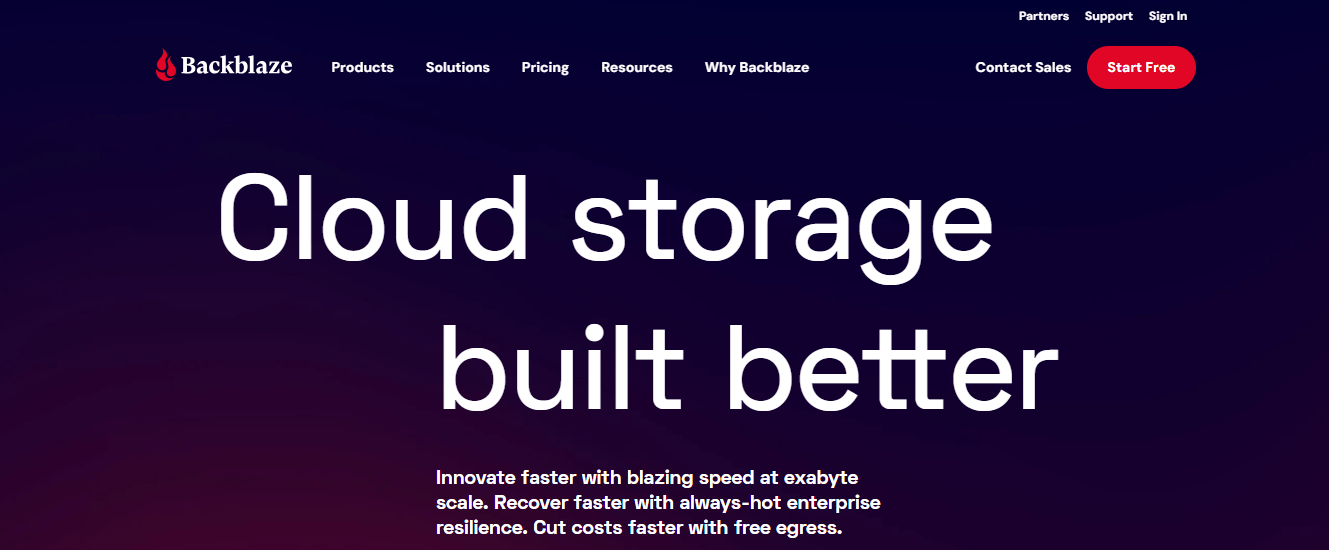
Backblaze is an independent cloud storage provider that helps businesses and individuals easily store, access, and protect their data. The company offers two core products: Computer Backup for automatically backing up files from personal computers, and Backblaze B2 Cloud Storage, an object-based storage service for general data storage, app integration, and archiving.
Backblaze is known for its simplicity, dependability, and affordable pricing, making it a popular choice among users who want secure and easy data protection.
Features
- Offers unlimited backup capacity for computer data.
- Accepts files of any size without restrictions.
- Provides automatic and continuous backup, detecting and saving file changes in real time.
- Includes version history for retrieving previous file versions.
- Supports multiple recovery methods, including direct download or mailed hard drive delivery.
Pros
- Unlimited cloud backup for individual users.
- No file size limits, suitable for large data sets.
- Easy setup and operation for all skill levels.
- Affordable pricing compared to similar services.
- Various recovery options for convenience and flexibility.
Cons
- One license per computer restriction.
- Basic web dashboard with limited features.
- No full disk image backup capability.
Pricing
Computer Backup (per computer):
- $9 per month.
- 15-day free trial available.
Backblaze B2 Cloud Storage:
- $6 per TB per month
- Overdrive tier starts at $15 per TB per month for advanced data operations.
5. IBM Cloud Object Storage
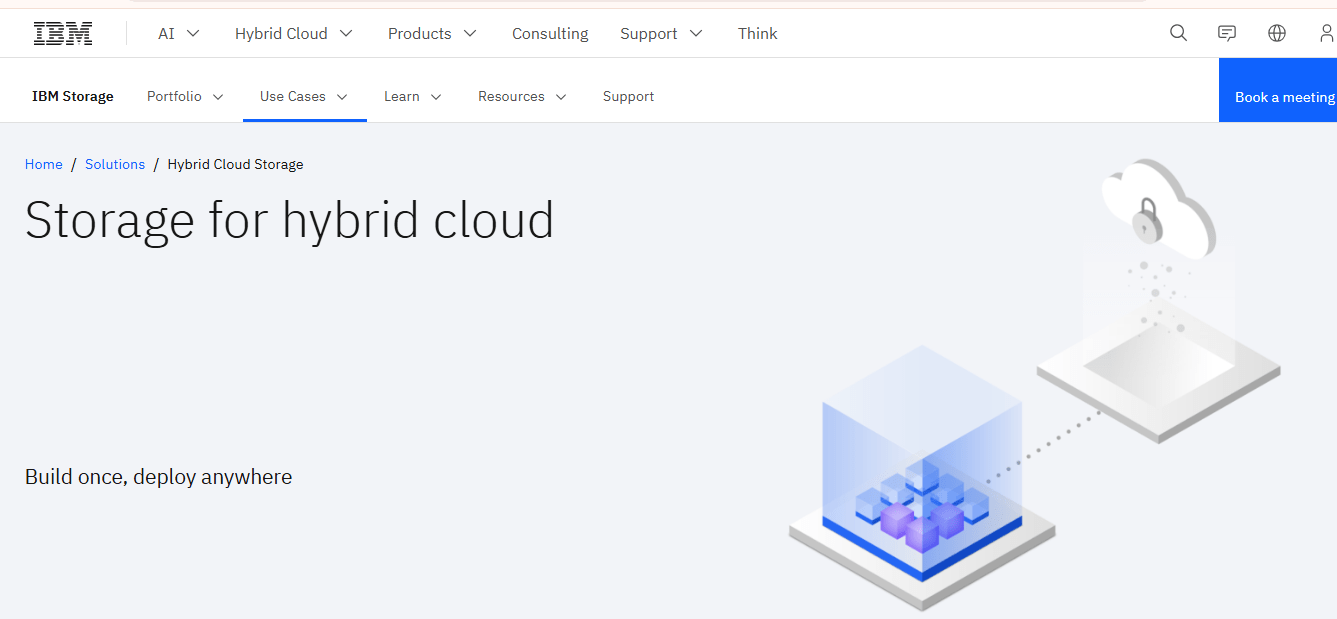
IBM Storage for Hybrid Cloud helps businesses deploy cloud architectures within their own infrastructure and extend them to public cloud environments. It offers scalable storage built for high durability, security, and resilience. It protects sensitive information through encryption options and automates storage tiering to optimize costs. IBM also focuses on making data easily movable across environments while maintaining consistent data services and advanced storage functions.
Features
- Offers multiple resiliency options that align with workload needs across global availability zones.
- Encrypts data both at rest and in motion to ensure strong protection.
- Provides default server-side encryption and an option to use your own encryption key.
- Supports large-scale data growth for enterprise and cloud-native workloads.
- Includes built-in storage tiers to match access needs and control costs.
Pros
- Provides reliable and consistent object storage across several data centers in the UK.
- Ensures uninterrupted operation during software upgrades, hardware updates, or expansion.
- Protects data from being deleted or modified with immutability features.
- Supports advanced AI integration for deeper data analysis.
Cons
- Strong access control exists, but configuring roles and policies can be complex without clear guidance.
- Integrates smoothly with IBM tools, but requires extra steps to connect with some third-party applications.
Pricing
- Standard Plan: Free for up to 5 GB; pay only for what you use.
- Cloud Storage: Starts at $12 per TB per month (pricing may vary based on usage and region).
6. Dell Data Storage

Dell offers a comprehensive data storage portfolio that includes block, file, and object storage systems built for private, hybrid, and public cloud setups. The company focuses on delivering scalable performance, strong security, and smooth integration with cloud workflows to meet modern enterprise demands.
In its hybrid cloud storage solutions, Dell combines on-premises infrastructure with cloud services. This setup allows organizations to move workloads easily, replicate data, and manage storage from a single interface across multiple environments.
Features
- Syncs and replicates data between on-premises systems and the cloud.
- Uses software-defined storage (SDS), which separates storage software from hardware for flexible deployment.
- Provides built-in tools for data backup, recovery, and immutability to protect against loss or corruption.
- Offers protection and recovery options that extend across hybrid and multi-cloud environments.
- Supports automated scalability, allowing storage capacity to expand as data grows.
Pros
- Flexible deployment options ensure users are not tied to one hardware configuration.
- They are easy to install, making setup and migration straightforward.
- Maintenance is simple and reliable, reducing downtime.
- High storage density supports large amounts of data in smaller physical spaces.
Cons
- Some users may experience latency issues when running high-performance workloads.
- Advanced configurations may require specialized management expertise.
Pricing
APEX Data Storage Services – Block Data Service
- Capacity Optimized: $5,585/month or $0.0545 per GB
- Balanced: $6,614/month or $0.0646 per GB
- Performance Optimized: $9,044/month or $0.0883 per GB
APEX Data Storage Services – File Data Service
- Capacity Optimized: $3,906/month or $0.0191 per GB
- Balanced: $7,272/month or $0.0355 per GB
- Performance Optimized: $15,917/month or $0.0777 per GB
7. Jottacloud
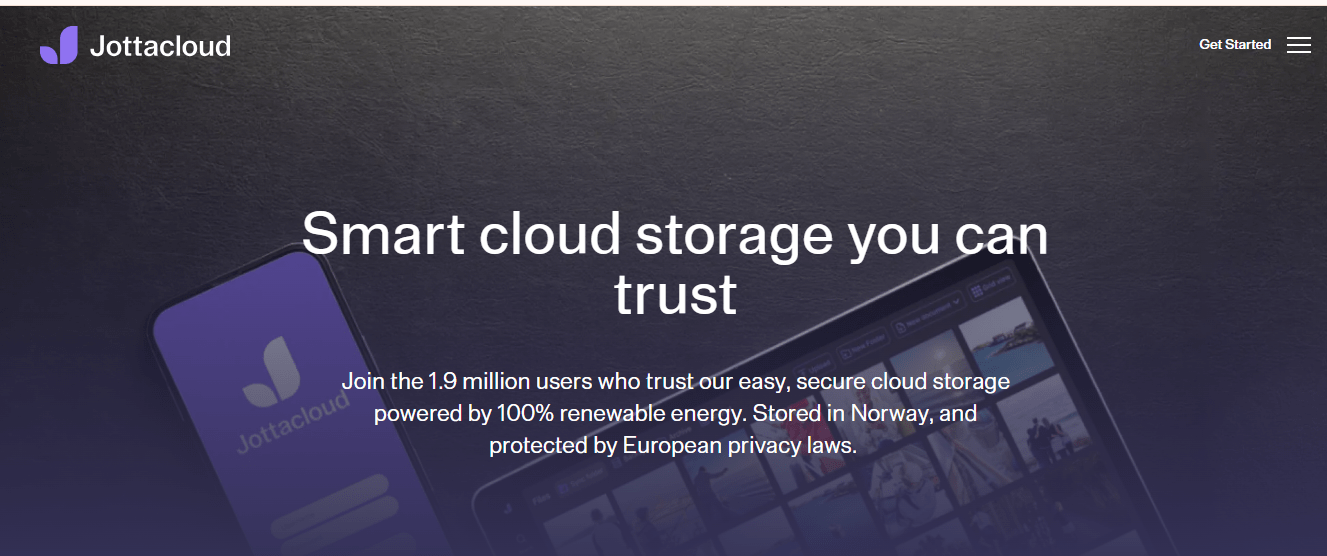
Jottacloud is a Norwegian cloud storage and backup service designed to keep your files secure, accessible, and organized. It allows users to upload, sync, and back up files from multiple devices—whether PC, Mac, or mobile. The platform also includes an archive feature that lets you store data only in the cloud, helping you free up local disk space. Advanced users can manage files via a command-line interface (CLI), and Jottacloud encrypts all data both in transit and at rest using AES-256 encryption.
Features
- Unlimited storage option: Offers unlimited storage for users who don’t want to worry about storage limits. (Note: Upload speed reduces after large volumes, typically beyond 5TB.)
- Archive mode: Lets you upload files solely to the cloud without syncing them locally, freeing up computer storage.
- Block-level sync :Updates only the changed portions of files, reducing upload times for modified documents.
- File versioning and rewind: Keeps older versions of files and allows users to revert to previous states if needed.
Pros
- Combines cloud storage and backup in one service.
- Offers an unlimited storage plan at a reasonable cost.
- Maintains strong privacy standards with servers based in Norway.
- Provides flexible sync options for different file management needs.
Cons
- Lacks end-to-end encryption, meaning files are not fully private from the service provider.
- Offers limited collaboration and sharing tools compared to competitors.
- No incremental backup support, which may affect efficiency for large datasets.
- Upload speeds are throttled after heavy use beyond 5TB.


